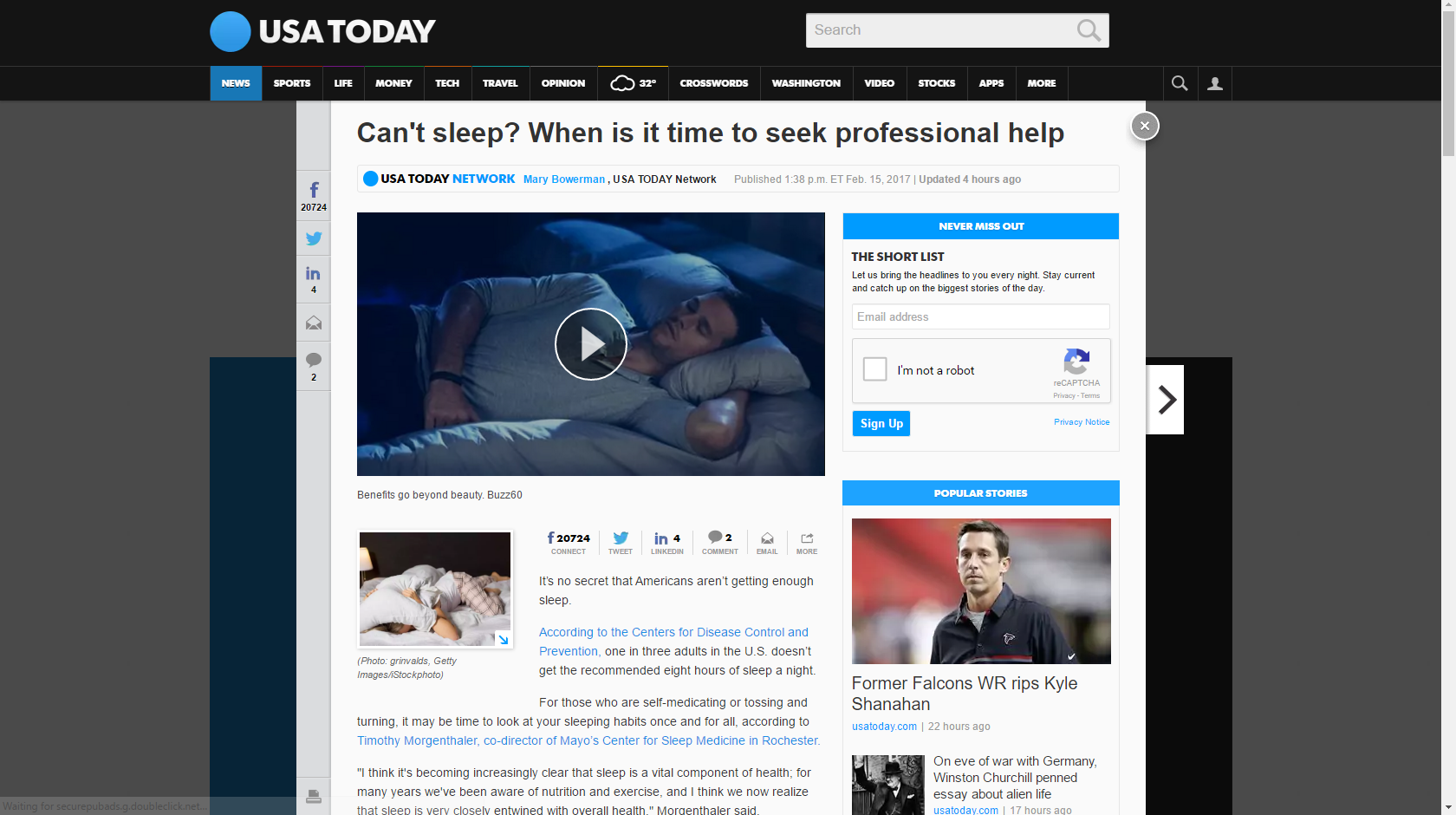
Sleep Disorder: Do you Have One, And When Should You See A Professional?
Sleep Disorder: Do You Have One? When Should You Seek Help?
It’s no secret that Americans aren’t getting enough sleep.
According to the Centers for Disease Control and Prevention, one in three adults in the U.S. doesn’t get the recommended eight hours of shut eye a night.
For those who are self-medicating or tossing and turning, it may be time to look at your sleeping habits once and for all, according to Timothy Morgenthaler, co-director of Mayo’s Center for Sleep Medicine in Rochester.
“I think it’s becoming increasingly clear that sleep is a vital component of health; for many years we’ve been aware of nutrition and exercise, and I think we now realize that sleep is very closely entwined with overall health,” Morgenthaler said.
And while many may wish for an easy fix to their sleepless nights, it takes work, according to Jeffrey Ellenbogen, Assistant Professor of Neurology and sleep medicine at Johns Hopkins University.
So how do you know when it’s time to seek professional help?
“In sleep medicine, we’re looking for patterns and causes first, treatment decisions second,” he said. “All too often people skip the first step and turn too quickly to sleep medications.
Here are a few things you should make sure you’re doing before seeing someone about whether you have a sleeping disorder:
Set a bedtime and keep it
People should strive to do several things when it comes to developing healthy resting habits, said Morgenthaler.
“The healthy sleep habits come into several different categories. One is setting a bed time and going to sleep within 30 mins of that time, a fixed wake up time 7-8 hours after you go to sleep and establishing a going to bed pattern that helps sleep,” he said.
Life happens and while people may think they don’t need a bedtime when they become adults, that’s unfortunately not the case, according to Ellenbogen.
“Bedtime is critical. The more someone can fix their bedtime to seven days a week 365 a year, they are much more apt to have a successful night of sleep because they’ve trained the circadian rhythm of their brain to support that sleep-wake behavior,” Ellenbogen said.
Ellenbogen said he commonly sees people who stay up late, but have a regular work schedule.
“So on weekdays they still go to sleep late — they are hard wired to get that second wind late at night, but then they muscle out of bed early,” he said. “By the end of the week, they are exhausted and sleep in….Then start the cycle again on the dreaded Monday morning. They effectively live in perpetual jet lag.”
He said the key to fixing a situation like that, is dealing with the behavioral aspects, and not putting a bandaid on the problem with medicine.
Likewise, Morgenthaler said people should strive to create a bedtime routine that helps them relax before going to bed. That means the bedroom should no longer be used for scrolling through Twitter or playing video games.
“The bed is used for sleeping, sex and reading—if it doesn’t keep you alert,” Morgenthaler said.”There’s no working in the bed, no playing computer games. The bedroom should be comfortable and feel safe.”
To read the rest of this article, click here.

